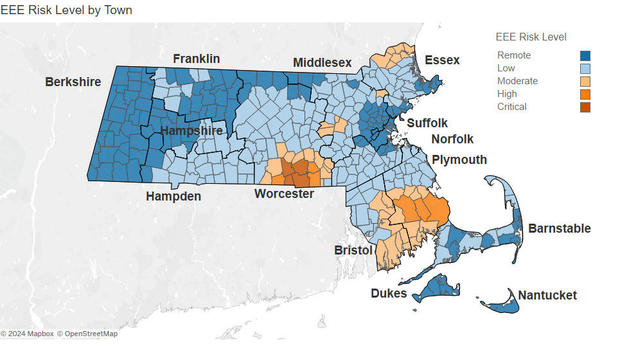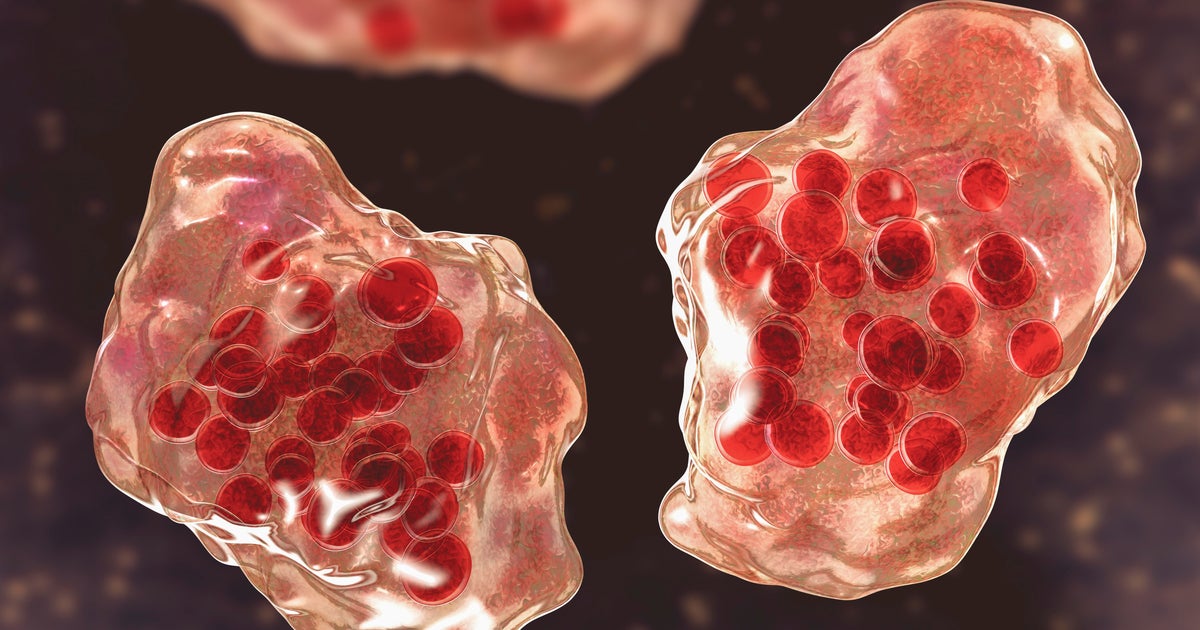EEE map for Massachusetts shows towns at highest risk level for mosquito-borne virus
BOSTON - Multiple towns in Massachusetts are facing critical or high risk levels of the mosquito-borne eastern equine encephalitis, or EEE. A map published by the state's Department of Public Health shows the EEE threat for every community in the state.
EEE cases in Massachusetts
Massachusetts on Thursday reported its second human case of EEE in a woman in her 30s. She contracted the virus in Plymouth County, before the area was aerial sprayed for mosquitos. A EEE case in a horse was also confirmed there.
Many towns around Plymouth have a EEE risk level of moderate or high, according to the map. And some towns in southern Worcester County are at a critically high risk of EEE because a man in his 80s was infected with EEE there.
Earlier this week, 41-year-old Steven Perry from Hampstead, New Hampshire - not far from the Massachusetts border - died from EEE. His family said he had no underlying health conditions but developed severe central nervous system disease and died days later.
EEE risk level in Massachusetts towns
As of Tuesday morning, these were the Massachusetts communities listed as having a moderate, high or critical EEE risk level.
Critical: Douglas, Oxford, Sutton, Webster
High: Carver, Dudley, Middleboro, Northbridge, Plymouth, Uxbridge
Moderate: Acushnet, Amesbury, Auburn, Berkley, Bridgewater, Charlton, Dartmouth, Fairhaven, Freetown, Grafton, Groveland, Halifax, Haverhill, Hopedale, Hudson, Kingston, Lakeville, Leicester, Mariion, Marlboro, Mattapoisett, Maynard, Mendon, Merrimac, Millbury, Milford, Millville, New Bedford, Newburyport, North Reading, Plympton, Raynham, Rochester, Salisbury, Southbridge, Sudbury, Taunton, Upton, West Newbury, Wareham, Westport
What are the symptoms of EEE?
EEE is a rare disease, but about 30% of those who get infected die, according to the CDC. Most people don't show symptoms, but those that do can have fever or brain swelling.
Symptoms can include headache, vomiting, diarrhea, seizures, behavioral changes and drowsiness.
To avoid mosquito bites, experts recommend using insect repellent, wearing long sleeves, staying indoors at dusk and dawn when mosquitoes are active, and draining standing water.








